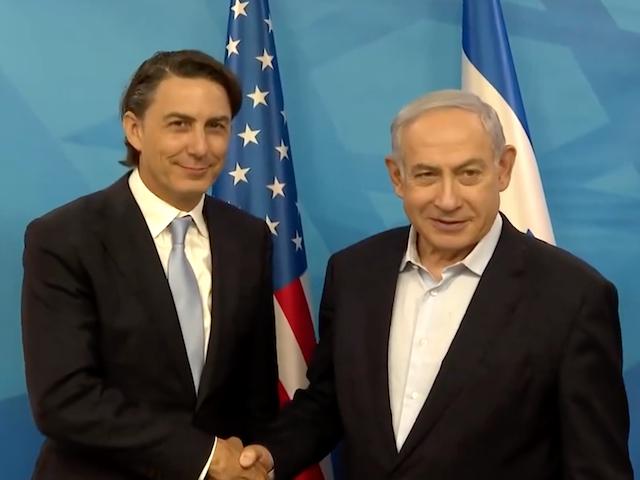Nearly a year after Hezbollah launched its relentless attacks on northern Israel in coordination with Hamas, the Israeli security cabinet has updated its war aims to include the safe return of displaced northern residents. "Israel will continue to act to achieve this goal," stated the Prime Minister's Office, underscoring the government's determination to secure its citizens and restore normalcy in the north.
Thousands of Israelis were forced to evacuate from the northern border when Hezbollah, a militant Shi'ite group backed by Iran, escalated its offensive last October. Hezbollah's aggression has been unwavering, fueled by Iran’s ambitions to destabilize the region and apply pressure on Israel through its network of proxies. Despite international calls for restraint, Hezbollah has explicitly stated it will not cease its assaults until a ceasefire is achieved in the Gaza Strip, where Hamas continues its hostilities against Israel.
The Security Cabinet has updated the objectives of the war to include the following: Returning the residents of the north securely to their homes.
— Prime Minister of Israel (@IsraeliPM) September 17, 2024
Israel will continue to act to implement this objective.
Israel's Firm Stance: Military Action as the Only Solution
Israeli Defense Minister Yoav Gallant, in a critical meeting with Amos Hochstein, US President Joe Biden’s Middle East envoy, emphasized that military action remains the sole viable path to secure the northern border and return residents to their homes. "The only way left to return the inhabitants of the north to their homes is through military action," Gallant declared, highlighting the futility of negotiations as Hezbollah deepens its alliance with Hamas and dismisses diplomatic solutions.
The uncompromising position taken by Gallant reflects a broader consensus within the Israeli leadership regarding Hezbollah’s threat. However, political tensions within the Israeli government have surfaced, with rumors swirling that Prime Minister Benjamin Netanyahu might replace Gallant with Gideon Saar of the New Hope party. Gallant has reportedly clashed with Netanyahu over the Prime Minister's firm rejection of a ceasefire proposal aimed at securing the release of hostages, a stance Gallant opposes.
🚨JUST IN: *Prime Minister Netanyahu to the American envoy Hochstein: “It will not be possible to return our residents without a fundamental change in the security situation in the north.”
— Raylan Givens (@JewishWarrior13) September 16, 2024
The prime minister also said that Israel appreciates and respects the support of the…
Gallant was notably the sole dissenting voice among nine Cabinet ministers in an August vote on maintaining Israeli troop presence along Gaza's border with Egypt, a strategic move seen as a further obstacle to hostage negotiations. Despite these internal disagreements, there remains a united front on the necessity of military action to neutralize the Hezbollah threat in the north.
A Stalemate of Strategy: U.S. Opposition and Israeli Determination
In his meeting with Hochstein, Netanyahu conveyed a clear and resolute message: the safe return of northern residents cannot be achieved without fundamentally altering the security landscape in the region. While expressing gratitude for U.S. support, Netanyahu made it unequivocally clear that Israel will act independently if necessary to protect its citizens and secure its borders.
NOW THAT Hezbollah has decided to unilaterally attack Israel again, forcing the evacuation of around 100,000 Israelis fm the North, it is clear this problem requires a military solution.
— Rita Rosenfeld (@rheytah) January 16, 2024
US envoy Amos Hochstein is trying to find a non-military solution but he will likely fail. pic.twitter.com/qopSLvwE7y
This stance is at odds with the United States, which opposes a full-scale military operation in Lebanon due to the risk of igniting a broader regional conflict involving Iran, Hezbollah's principal benefactor. The U.S. fears such a conflict could rapidly escalate, engulfing the Middle East in war. However, for Israel, the ongoing threat from Hezbollah, bolstered by Iran's extensive support for various militant groups, presents an intolerable risk that demands decisive action.
Hezbollah, Hamas, and the Expanding Axis of Hostility
The complex web of threats facing Israel extends beyond Hezbollah and Hamas. Other Iran-backed groups, including Yemen's Houthis, have intensified their assaults on Israel since the conflict's inception last October. Just recently, the Houthis launched a missile attack on central Israel, following a drone strike in July that claimed a life in Tel Aviv. These actions underscore the expanding scope of the anti-Israel coalition, with militias from Yemen to Iraq joining forces under Iran's strategic umbrella.
🔴 𝗪𝗔𝗥 𝗜𝗡 𝗧𝗛𝗘 𝗡𝗢𝗥𝗧𝗛 | "fundamental change" to the security situation in northern Israel is needed.@Netanyahu tells U.S. presidential envoy Amos Hochsteinhttps://t.co/gCXtNP5frI
— Jewish News Syndicate (@JNS_org) September 17, 2024
Hamas leader Yahya Sinwar, who assumed leadership following the assassination of Ismail Haniyeh in Tehran, openly praised the Houthis for their attacks, framing them as part of a coordinated effort to "defeat" Israel. Sinwar's rhetoric signals a dangerous escalation, as he vows to wage a prolonged war of attrition against Israel, bolstered by what he describes as strong resistance forces in Gaza. Sinwar, a mastermind of the October 7th attacks and one of Israel's most wanted figures, represents the most extreme faction within Hamas, driven by an unyielding commitment to Israel's destruction.
The Road Ahead: Israel's Path to Peace and Security
As Israel navigates this perilous landscape, it remains committed to protecting its citizens and restoring stability in the north. With Hezbollah's aggression showing no signs of abating, Israel's leadership has signaled that it will take whatever measures are necessary to secure its borders and ensure the safe return of its people. The coming months will be critical, as Israel balances its military objectives with the complex diplomatic landscape, seeking a path that ensures long-term peace and security for its citizens while confronting the multifaceted threats posed by Iran's regional proxies.


